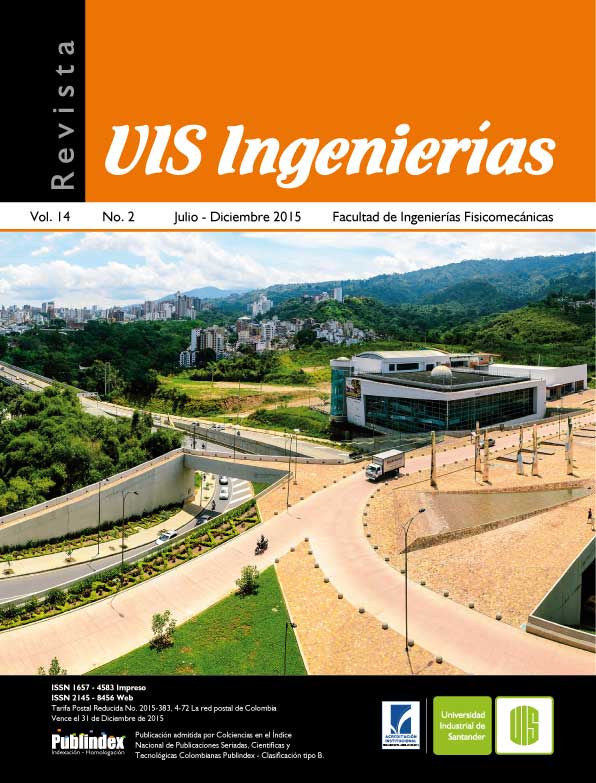Algorithm for the QoS provision in wireless networks 802.11 based on end-to-end delay restrictions
Published 2015-07-10
Keywords
- Quality of Service,
- satisfaction equilibrium,
- noncooperative games,
- 802.11 wireless networks,
- end-to-end delay
- game theory ...More
How to Cite
Abstract
Currently in the world of telecommunication there is the problem to ensure that user services can be transported properly in wireless networks, such networks must certify that the maximum end-to-end delay experienced is below the thresholds necessary to provide quality of service (QoS) especially in applications and services that require transfer of information in real time, such as voice calls, video calls, online games, among others; therefore, it is necessary that the delays are minimal to perform correct communication. In this paper, the problem is approached from the perspective of the theory of noncooperative games using equilibrium arguments such as the equilibrium of satisfaction (ES) as this solution concept ensures meet delay constraints end to end providing the required QoS in this regard.
Downloads
References
- Astaiza, E. Introducción a la teoría de juegos en comunicaciones inalámbricas. Trabajo de ascenso de categoría Universidad del Quindío Armenia, Quindío, 2013.
- Dimitri, E.; Charilas; Athanasios, D.; Panagopoulos A survey on game theory applications in wireless networks. http://www.sciencedirect.com/science/article/pii/s1389128610002239, 2014.
- Hou, I.; Kumar, P. Utility maximization for delay constrained qos in wireless. in CA: IEEE, (pp. 1–9), 2010.
- ITU-T SERIE G: Sistemas y medios de transmision, sistemas y redes digitales conexiones y circuitos telefónicos internacionales.Características generales de los sistemas nacionales que forman 1918, 2010.
- Londoño, A. Selección de Access Point en redes 802.11 basado en restricciones de ancho de banda. Trabajo de final de pregrado Universidad del Quindío, Programa de Ingeniería Electrónica, 2013.
- Meshkati, F.; Poor, H.; Schwartz, S.; Balan, R. Energy-efficient resource allocation in wireless networks with quality of service constraints. Communications, IEEE Transactions on, 57, 3406–3414, 2009.
- Nash, J. Equilibrium points in n-person games. Proceedings of the National Academy of Sciences of the United States of America, 50, 1950.
- Neely, M. Delay-based network utility maximization. Networking, IEEE/ACM Transactions on, 21, 41–54, 2013.
- Pérez, N.; Jimeno, P.; Cerda, T. Teoría de Juegos. Madrid, España: Pearson Education, 2004.
- Perlaza, H., S.and Tembine; S., L.; Debbah, M. Satisfaction equilibrium: A general framework for qos provisioning in self-configuring networks.
- Ross, S.; Chaib-Draa, B. Satisfaction equilibrium: Achieving cooperation in incomplete information games. En 19th Canadian Conf. On Artificial Intelligence (pp. 196–197). Quebec, 2006.
- Sánchez, I. Teoría de Juegos volumen 1. Madrid, España: Kalamo libros, 2009.
- Trujillo, D. Selección de Access Point en redes 802.11 garantizando mínima capacidad para QoS:una perspectiva desde la teoría de juegos no cooperativos. Trabajo de final de pregrado Universidad del Quindío, Programa de Ingeniería Electrónica, 2012.
- Vela, M.; Lindon, B. Teoria de juegos y modelos de oligopolio, 2011. Apuntes de estudio del curso de Economía de la Producción. Lambayeque - Peru.

